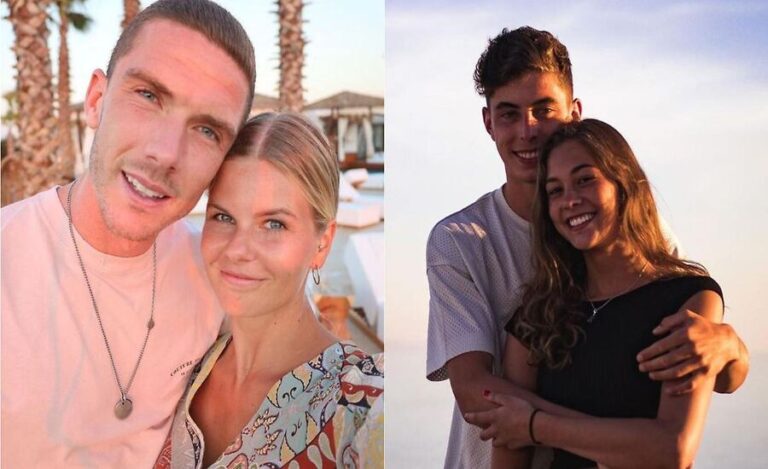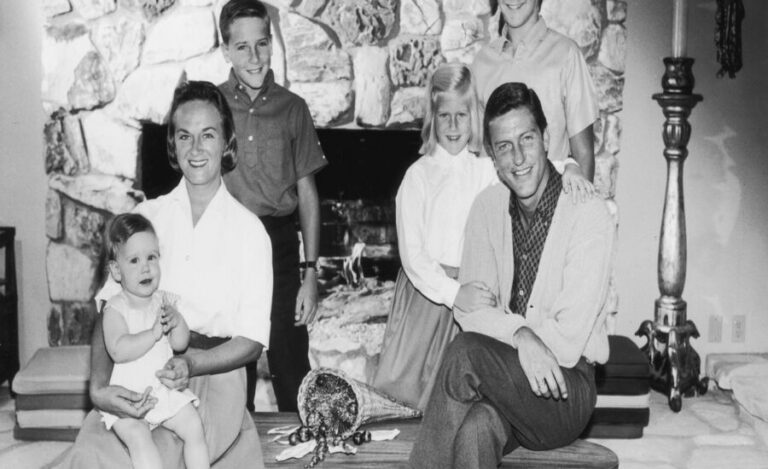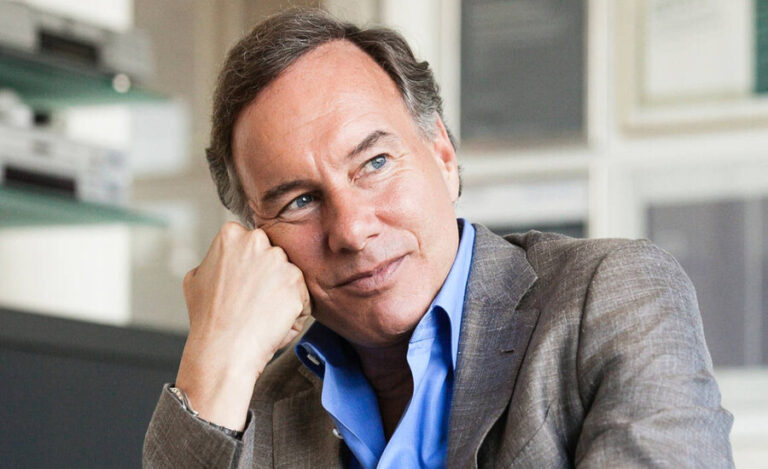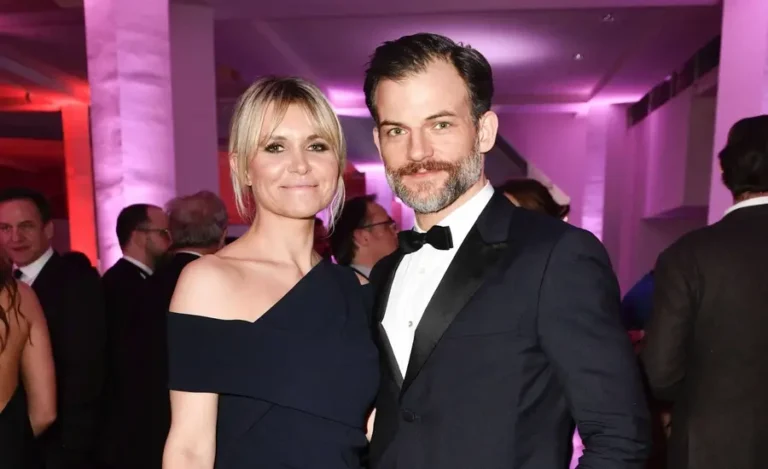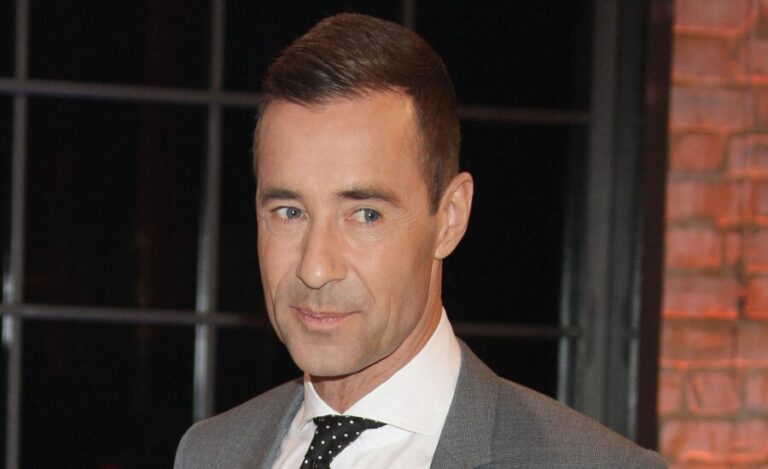Andrea Sawatzki is known to many as a talented actress and popular television personality. But behind the radiant smile lies a story that fundamentally changed the artist’s life. The stroke she suffered some time ago presented her with immense challenges and shook her world. How do you deal with such a dramatic experience? What support do you get from friends and family? In this article, we take a closer look at Andrea Sawatzki’s journey after her stroke and find out how she is coping with her new reality. Join us on this moving journey through ups and downs – it will be inspiring!
Who is Andrea Sawatzki?
Andrea Sawatzki was born on April 26, 1963 in Frankfurt am Main. She is one of the most famous actresses in Germany and has made a name for herself in various roles over the years. With her outstanding talent, she delights audiences both on television and in the cinema.
Her breakthrough came in the late 1990s with the popular crime series “Tatort”. There she played Detective Charlotte Lindholm and quickly won numerous fans. Her acting skills are versatile, which is reflected in her different roles – from dramatic characters to comedic performances.
In addition to her work as an actress, Andrea Sawatzki is also involved in social projects and actively supports various charities. Her authenticity and empathy make her a special personality not only on screen, but also in real life.
Her life has been marked by ups and downs, but her tireless commitment shows that she is always ready to take on new challenges.

The stroke and the impact on her life
For Andrea Sawatzki, the stroke came like a bolt from the blue. On a seemingly normal day, everything changed in a split second. Suddenly she was confronted with a reality that she had never expected.
The impact was drastic, involving both physical and emotional challenges. Movement and speech skills were severely impaired. A feeling of helplessness overcame her as she realized that simple tasks had suddenly become insurmountable hurdles.
This experience not only changed Andrea’s body, but also her view of life itself. She had to learn to live with a new self-image and to organize her everyday life differently. The routines that were once so familiar had to be reinvented.
Friendships were tested as many people didn’t know how to react. But it was during these difficult times that the strength of their relationships was revealed – support often came from unexpected quarters.
Andrea found new ways to communicate and express herself; this became part of her journey back to life after the stroke.
The Challenges of Rehabilitation
Rehabilitation after a stroke is often a rocky road. For Andrea Sawatzki, this meant dealing with new physical limitations. Returning to old abilities can be frustrating.
Physiotherapy played a central role in her everyday life. Each session was both a challenge and a source of hope. Small improvements were sometimes difficult to see, but she could never give up.
In addition to physical therapy, Andrea also had to work on her speech. Speech therapy helped her to restore communication and relearn how to speak. This required patience and perseverance.
Psychologically, rehabilitation was also a huge burden. The loss of independence often led to emotional setbacks. Nevertheless, she found strength in small successes.
With each step on this long journey, Andrea learned more about herself and her strength . It was not just a physical struggle; it was a journey to accepting her new reality and rediscovering her will to live.
The support of family and friends
The support of family and friends plays a crucial role in Andrea Sawatzki’s life after her stroke. This time is characterized by uncertainty, fear and physical limitations. It is in such moments that true friendships emerge.
Family comes first. They are not only places of emotional refuge, but also practical helpers in everyday life. Whether it’s doctor’s appointments or cooking – relatives actively help and do their best to make everyday life easier.
Friends provide an important social connection. Shared activities can be organized differently, but laughter and exchange remain central. Often, a simple conversation about everyday topics is enough to reduce the feeling of isolation.
Andrea found comfort in the small gestures of her loved ones: an encouraging word here, a helping hand there – all of these helped her feel less alone on her road to recovery.
This support not only promotes their physical healing, but also significantly strengthens their emotional state. The solidarity offers courage in difficult times and shows once again the power of interpersonal relationships.
How has your everyday life changed?
The stroke has fundamentally changed Andreas’ everyday life. Simple tasks that were once routine now require more time and energy. Getting up in the morning or getting dressed is often a challenge. Every step has to be carefully considered.
Communication has also suffered. Finding words sometimes becomes a hurdle. Conversations are no longer as fluid as they once were, which can be frustrating. Andrea now uses alternative ways to express her thoughts – be it through gestures or notes.
Everyday activities like shopping suddenly seem overwhelming. The uncertainty about whether she can manage everyday errands on her own leads to a new dependency on others.
At the same time, she discovers new joys in small things: a walk in the park or reading a book become precious moments of happiness.
Friends and family support her in regaining her everyday life. Joint activities not only help her with her rehabilitation, but also bring new perspectives back into her life. The road is long and rocky, but every day brings small successes and progress on her journey back to life.
Dealing with physical changes
A stroke often brings with it profound physical changes. This was a challenging time for Andrea Sawatzki. Suddenly she not only had to relearn her ability to move, but also completely rethink how she dealt with her body.
The first steps after the stroke were anything but easy. She struggled with coordination and lack of strength. Everyday things like getting dressed or climbing stairs became real challenges. It required a lot of patience, both from herself and from those around her.
It was important for Andrea to accept her new reality. Instead of wallowing in self-pity, she decided to actively fight against the limitations. Physiotherapy became an integral part of her life and helped her to set new goals.
Her mindset played a crucial role in how she viewed her body. She learned to be proud of every small step of progress – be it a light step or raising an arm. This process taught her not only resilience, but also gratitude for life itself.

Andrea Sawatzki’s message to other stroke patients
Andrea Sawatzki has a clear message for other stroke patients. She wants to encourage them and give them hope. Every day can bring new challenges, but there are also bright spots.
She stresses the importance of patience. Healing takes time and the road is often rocky. It is important not to lose yourself and to celebrate the small steps forward.
Solidarity plays a crucial role in this difficult phase. Family and friends can offer great support. Andrea encourages those affected to speak openly about their feelings and accept help.
Mental strength should not be underestimated. Positive thinking can work wonders, even if it is sometimes difficult. Redesigning your own life is possible – step by step.
She also talks about the most important thing: regaining the love of life. Beauty is often found in the simplest things, be it a ray of sunshine or a friendly smile from a loved one.
Conclusion: A new
Andrea Sawatzki’s stroke was a life-changing experience. This challenge not only changed her life, but also her view of the world. It shows us that after a serious stroke of fate, there is always a way to carry on and redefine yourself.
The support of family and friends plays a crucial role. Community helps to better cope with physical limitations and gain new perspectives in everyday life. Andrea is an example of how one can draw strength despite all adversities.
Her message to other sufferers encourages them to never give up and to actively shape their own path to rehabilitation. Every step counts – no matter how small or large.
Life goes on and is enriched by new experiences and insights. The courage to change not only shapes Andrea Sawatzki’s personal environment, but also inspires many people out there.

